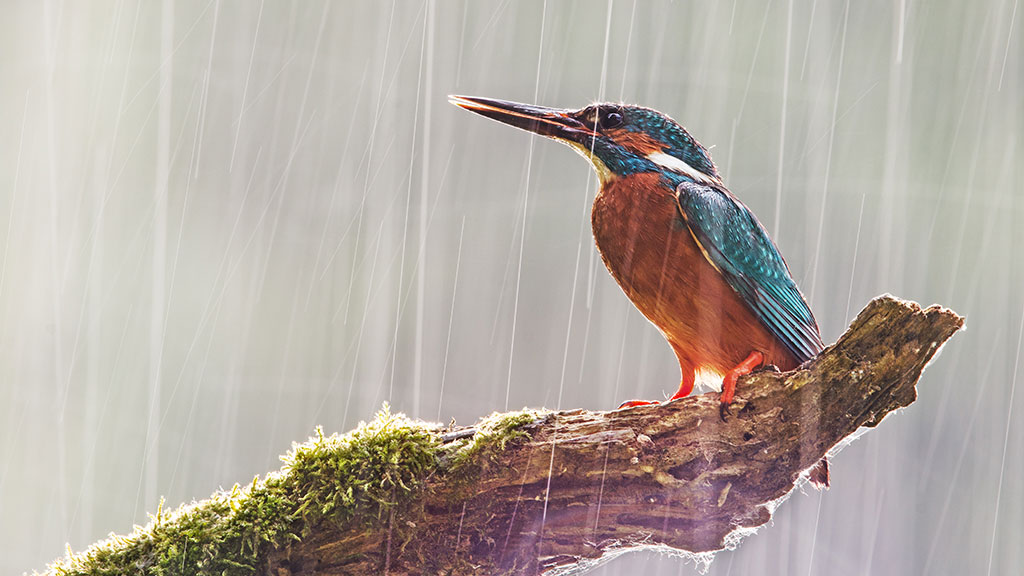Why spending time near water can boost your mental health
Annie Smith and her 20 year old son who lives with autism both attended a Blue Prescribing programme at London Wetland Centre, which gave them simple ways to connect with nature daily to help boost their mental health.

What made you decide to sign up to the Blue Prescribing programme?
My son is living with autism and sometimes struggles with communicating. He also has difficulties managing his emotions.
Now that he’s a young adult, I’m finding there’s very little support available to help him manage his mental health, so it often rests with me. This can be difficult and a big responsibility, and quite isolating as well.
The role of caring can fall quite hard on somebody and it was affecting my physical and mental wellbeing. I found myself stuck in a bit of a rut, slowly going downhill, feeling everything was really pointless. So, this was something I hoped would help me with that.
This workshop was great, because I can bring my son along with me and we can do it together. I could support him, but at the same time, I received support from the facilitators. So, it gave me a bit of time out – a break from being a carer.
It’s only two hours a week for six sessions which made it feel quite doable. Plus, it was easy to access for both of us. So straight away I could see it would be really helpful for our mental health and wellbeing.
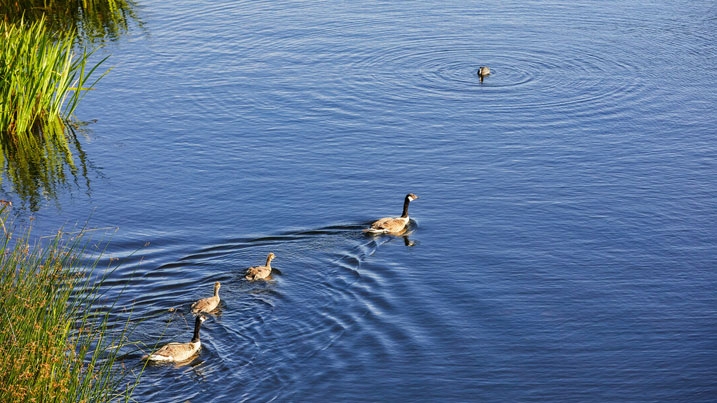
How has it helped you and your son?
I’ve found it just as good if not better for my mental health as when I’ve taken antidepressants in the past or had regular therapy session. It gives you similar tools, but without the medication.
I really liked the fact it gave us lots of concrete ideas about how to connect with nature in our daily lives to help boost our mental health. It showed me how to problem solve things for myself, which was very helpful, especially in my role as a carer for my son.
It also helped me and my son re-connect with each other without any pressure, because it’s something we can do together. So, it’s helped us to start to feel better in our day to day life together.
It's also fairly easy to go back and revisit the things that worked. They’re often really simple, but you just don’t think about them until you get to a point where you feel nothing works.
Was it helpful being part of a small group?
Meeting up with other people was something I particularly enjoyed about the course. You realised a lot of people were feeling the same way as you were. Even if you didn’t feel like talking sometimes, you wouldn’t have to say anything. You could just listen and nod and it was enough to know you weren’t alone in what you’re feeling.
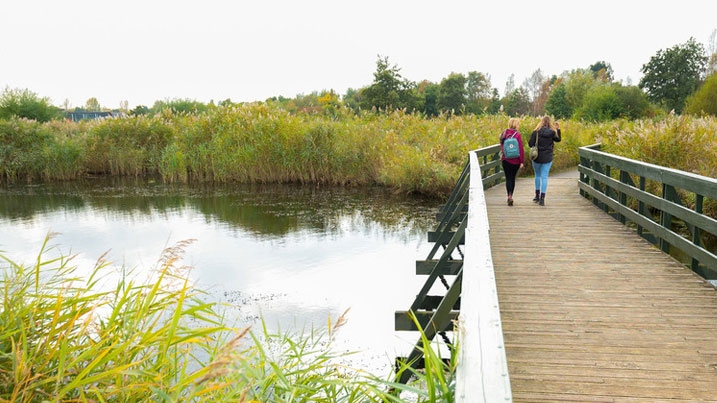
How important was wetland nature for you as part of the course?
Getting back to nature really helped relax my mind and made me feel more connected to other people. I really enjoyed learning about the wetland and its wildlife and the birds. It definitely made us feel more connected to the birds and the beautiful landscape.
Is there any place in particular in you enjoyed?
It was very therapeutic listening to the grasses. The water is very relaxing and I enjoyed looking out at the city view across the water. The otters were super cute and always fun to watch. The whole area is very special.
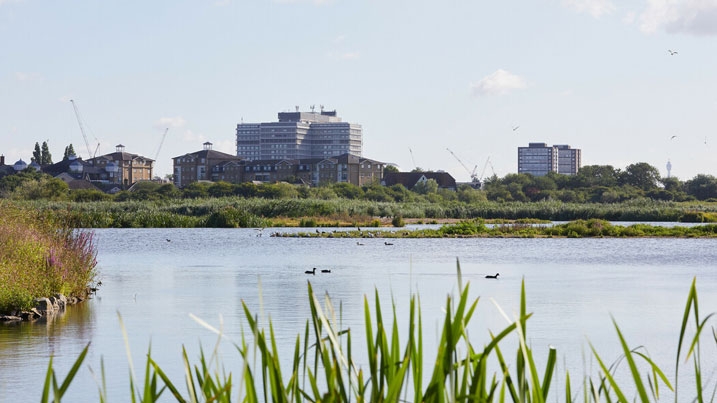
What activities did you especially enjoy on the course?
Working with clay was a really helpful activity, very mindful. I also enjoyed the photography and that’s something we’ve enjoyed doing on our return visits. It gives us a way to connect with nature and a reason to be out and about. The weaving was also great and I enjoyed creating something as a group.
What is your strongest memory from the course?
I really enjoyed the balancing walk over the mud and through the grasses. It was quite tricky and it made you think about your whole body. Particularly for my son. He’s not the most agile and I think working with his whole body and mind to do something really snapped him out of that difficult place he was in.
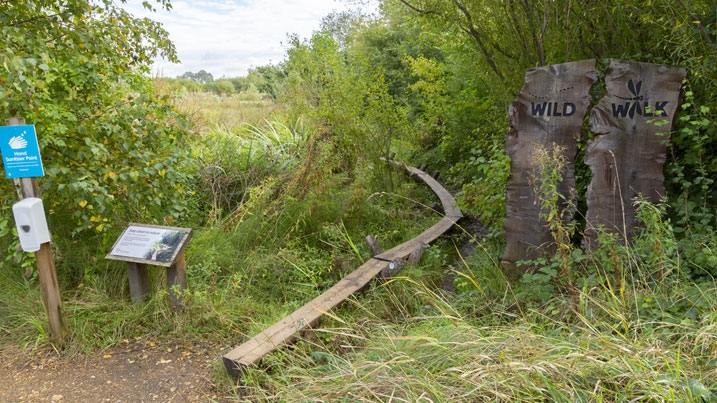
What support did you get from the course facilitators?
It was the people that made it so special. They’re just really friendly and helpful. Just having somebody to chat to as you walk around. Someone who was going to be there to meet you when you arrive. It’s definitely one of my go-to places now. I regularly come back and enjoy having little chats with people I recognise from the course and that definitely makes it different from going to just any other place. I like knowing you’re likely to see a familiar face. It feels like a little bit of a community beginning to grow.
How did the course help your mental health?
When you’ve got a build-up of tension and you get to a point where you’re having panic attacks or overthinking things and getting quite emotional, it’s great to have a safe space to sit and take your mind off everything.
And it’s great to now be able to mimic those activities in my daily life. They give you a chance to relax and breathe. It’s really helped build up a therapeutic resilience that stops you getting that point where you feel everything is caving in on you.
How has the course helped you in the rest of your life?
Learning those practical steps you can take and changes you can make to your life, have really helped us both.
It’s definitely made me think about incorporating relaxing, mindful activities more regularly into my life, like a bit of gardening, or a twenty-minute walk. I’m also now considering some volunteering roles for myself, just for the mental health aspect of connecting with other people and being part of a community that’s bigger than just yourself.
My son is also now looking at the possibility of different volunteering roles which he would never have had the confidence to do before.
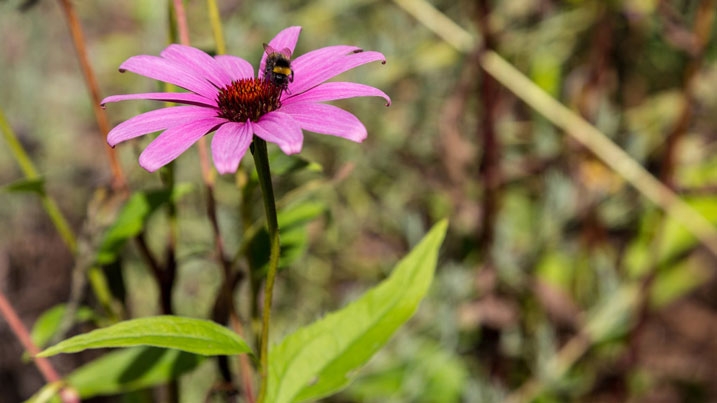
Was there anything that surprised you, that you learnt about yourself on the course?
I think the need to be part of something, to share and talk to other people. Initially I thought I was just going to go along and listen and be there and learn.
It was also good to be reminded about how you can manage your own mental health in small, simple ways. It’s easy to get into a state of mind where you think you’re doing everything already. What more is there to do? So it surprised me to see how many other useful things there were I could try.
What would you say to someone who’s experiencing similar challenges, and is thinking about signing up to a workshop?
Do it. It’s worth a try. It’s a small group. It’s very comfortable and you can work at your own pace. There’s no pressure to talk, to do anything. It’s totally up to you what you want to get out of the project. It’s very doable and the skills are easily transferable.
I suppose it’s an opportunity to learn about yourself and how you can put yourself in a better place.
It’s a very small amount of time, but you reap a lot of benefits from it.
The course really helps puts you in the driving seat so you can help yourself. It’s been great to feel part of the community and a brilliant stepping stone. For us it’s been very memorable and something I will definitely go back to for help in the future.
Find out more about our Blue Prescribing work

